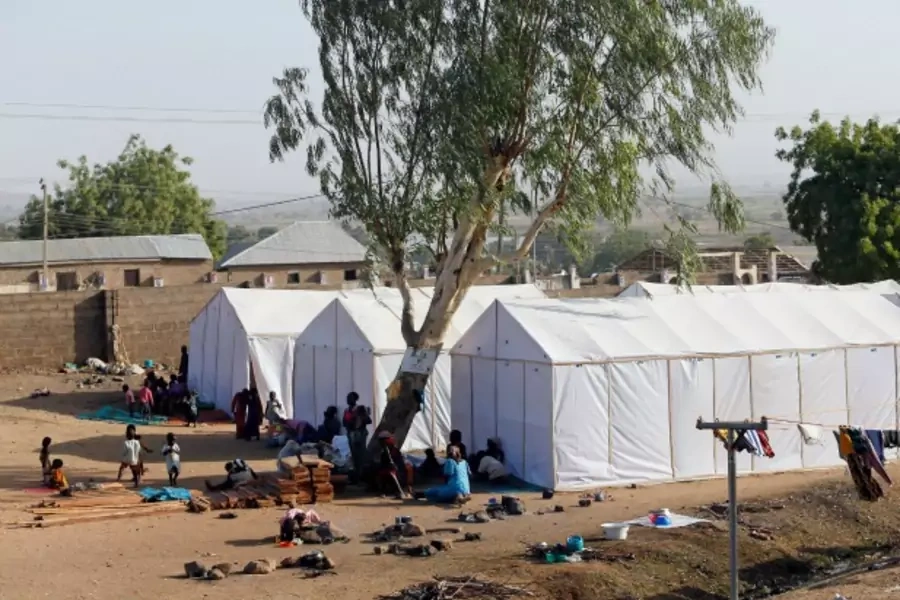More on:
On February 9, two female suicide bombers killed at least sixty people in a camp for internally displaced persons (IDP) about fifty miles from Maiduguri, Borno state’s capital. The Nigerian media reports that a third bomber did not detonate her explosives after seeing family members in the camp.
As is the usual practice now, no group has claimed responsibility, but there is unanimity that it was Boko Haram, the radical Islamist movement that seeks to destroy the Nigerian secular state. There have been suicide bomber attacks on other IDP camps, though this is apparently the first occurence in Borno state, where Boko Haram has its origins.
Conventional wisdom holds that as the Nigerian military has driven Boko Haram out of the territories it once occupied, it has returned to its earlier tactic of attacks on soft targets, such as markets and mosques. Adding IDP camps is a logical extension of the target list.
Suicide bombing has become so frequent that commentators take it for granted. In fact, it is quite new. Unlike in the Middle East, until recently there was no tradition of suicide attacks for political purposes in West Africa. In fact, suicide was a major social taboo. The first instance of suicide bombing in Nigeria occurred only in 2011. Who introduced the tactic is unclear. One hypothesis is that it was first used by Ansaru, a radical offshoot of Boko Haram that has since disappeared. Ansaru was allegedly close to al-Qaeda in the Islamic Maghreb (AQIM), and the former may have copied the latter’s behavior. Boko Haram’s association with suicide bombing antedates its “oath of allegiance” to the self-proclaimed Islamic State in March 2015.
It is widely held that Boko Haram coerces women and children into becoming suicide bombers. No doubt that is true in some cases. However, suicide bombers in Iraq, Syria, or Afghanistan have sometimes been motivated by a desire for revenge for the deaths of loved ones at the hands of the military and security services. That may also be true in northeast Nigeria.
More on:
 Online Store
Online Store
